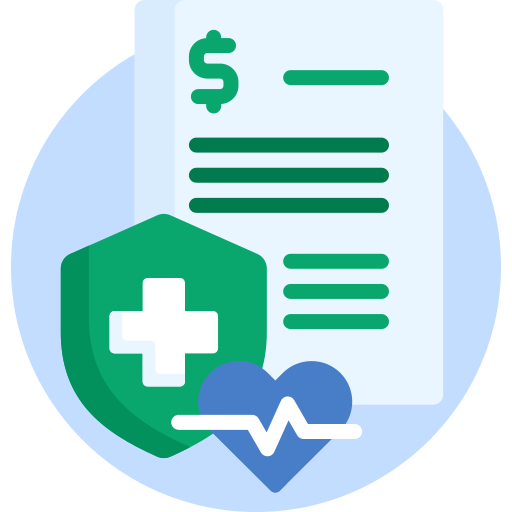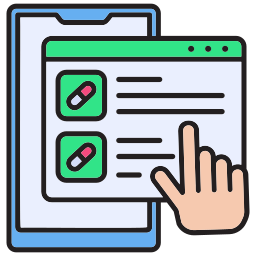Google recently announced its plan to phase out Google Fit by mid-2025, marking a significant change in its approach to health data management. As one of the most popular platforms for tracking health and fitness, Google Fit has long been a go-to for users and app developers. This decision paves the way for a more integrated and future-focused solution.
Google Health Connect is set to take the reins as the company’s primary health data platform. Designed to bridge gaps between apps, devices, and healthcare systems, it aims to make data-sharing simpler and more efficient. For users of the best fitness apps and health and wellness apps, this shift could mean greater compatibility and convenience across multiple tools and services.
This shows just how important it is for different healthcare systems to be able to talk to each other. With EHR integration and better connectivity among Health Connect partners, Google Health Connect signals a step forward in creating a unified system for managing personal health and fitness data. This evolution has the potential to benefit not only individual users but also healthcare providers who rely on accurate and accessible information.
Why Google Is Moving Away from Google Fit?
Google Fit, once a popular choice among health and wellness apps, struggled to keep pace with the evolving needs of modern healthcare systems. Its limitations in managing complex healthcare data highlighted the need for a more integrated and scalable solution. Let’s understand more about it in more detail:
Challenges in Managing Modern Healthcare Data
Google Fit has been a trusted tool for fitness tracking, yet it struggles with the growing complexity of healthcare data. With the increasing need for platforms to manage detailed medical records, patient histories, and real-time health metrics, Google Fit’s infrastructure feels outdated. It wasn’t designed to handle the intricacies of healthcare interoperability or meet the demands of EHR integration.
❗Demand for Standardized Healthcare Data Protocols
The healthcare industry embraces standardized protocols like FHIR (Fast Healthcare Interoperability Resources) to enable smoother data exchange between systems. Google Fit lacks support for these evolving standards, making it less compatible with modern health and wellness apps and platforms. This shift towards standardized solutions is crucial for ensuring data consistency and improving communication across healthcare systems.
❗Need for Stronger Interoperability Frameworks
Health Connect, Google's new platform, is designed to meet the demands of healthcare interoperability. Unlike Google Fit, it provides a more comprehensive framework for integrating data from multiple health and fitness apps. Health Connect partners benefit from improved data sharing and connectivity, ensuring users get a more unified experience across various fitness apps and healthcare solutions.
Related Read: The Interoperability Challenge in Healthcare
❗Addressing Limitations with Health Connect’s Features
Google Fit was primarily focused on fitness tracking, which left gaps in areas like secure data sharing and advanced health monitoring. Health Connect helps fill this gap by providing a strong system that helps healthcare providers and application developers build better health and wellness apps. This transition reflects Google’s commitment to enabling smarter, more efficient health solutions.
❗Aligning with the Future of Health and Wellness
As the focus shifts from general fitness to integrated health management, Google is aligning its strategy to stay ahead. Health Connect supports healthcare interoperability and ensures compatibility with the best health apps. This makes it a better choice for managing the complex requirements of modern healthcare systems while catering to a growing demand for personalized wellness solutions.
What is Google Health Connect?
Google Health Connect is a platform designed to unify health and fitness data from various apps, allowing users to track and manage their well-being in one place. Connecting different health and fitness apps offers users an easy way to monitor progress, set goals, and gain insights from their health data. The shift from Google Fit to Health Connect improves how data is shared, managed, and used across various health platforms, making it a step forward for better health tracking and accessibility.
Key Features and Capabilities of Google Health Connect
1️⃣ Data Unification
Health Connect brings together data from a variety of apps and devices. This unification means users no longer have to juggle information across multiple platforms. Instead, all the health data—from steps to sleep patterns—is aggregated into one streamlined location, offering a clearer overview of health.
2️⃣ Enhanced Interoperability
One of the core benefits of Health Connect is its focus on interoperability. It ensures that data from different fitness apps and devices can be exchanged seamlessly, allowing for better integration with healthcare systems and ensuring a more holistic view of a user’s health.
Related Read: The Future of Interoperability in Healthcare
3️⃣ Compliance with Healthcare Standards
Health Connect has been built with privacy and security, adhering to healthcare standards HIPAA and other data protection regulations. This makes it a reliable option for users who want to ensure their data is managed according to industry best practices, establishing trust with users and health professionals.
4️⃣ Integration with EHR Systems
The platform supports integration with Electronic Health Records (EHRs), making it easy for healthcare providers to access relevant fitness and health data. This integration helps streamline workflows and offers a more comprehensive view of a patient's health, enabling better decision-making.
5️⃣ Partnerships with Health and Wellness Apps
Health Connect partners with top fitness and wellness apps, ensuring users can access a wide range of tools that help monitor their well-being. These partnerships allow the platform to expand its reach and provide more functionalities, making it one of the best health apps available today.
6️⃣ Improved User Experience
The platform prioritizes ease of use, allowing healthcare providers and patients to navigate health data quickly and effectively. With intuitive design and user-friendly interfaces, Health Connect is optimized to help users access insights without any unnecessary complexities.
The Role of Interoperability in Modern Healthcare
Healthcare interoperability enables different health systems and platforms to share and use patient data seamlessly. Data from EHRs, wearables, and fitness apps must integrate smoothly to improve patient care and streamline healthcare delivery.
Platforms like Health Connect and HealthConnect CoPilot advance interoperability by connecting wearables and health-tracking apps with clinical systems. This integration gives healthcare providers a complete view of a patient’s health, enabling informed care decisions and better health management.
For providers, interoperability reduces manual data entry, allowing more focus on patient care. Patients benefit from personalized treatment, improved care outcomes, and fewer errors through data-driven decisions.
How HealthConnect CoPilot Simplifies the Transition?
HealthConnect CoPilot is a healthcare interoperability solution that simplifies data exchange across diverse systems, ensuring seamless integration between EHRs, wearable devices, and health and wellness apps. With support for FHIR APIs, HL7 standards, and advanced data synchronization capabilities, it enables real-time sharing of patient information while maintaining HIPAA compliance. It provides healthcare providers, payers, and patients a unified platform to access, manage, and utilize critical health data, bridging gaps between systems for better care coordination and enhanced operational efficiency.
✅ FHIR-Compliant Repository and R4 Format Support
HealthConnect CoPilot will prioritize compatibility with healthcare standards like FHIR, specifically the R4 format. This ensures that data shared between systems adheres to universal healthcare interoperability standards, making it integrate easily with existing EHR systems. This functionality will support healthcare providers, app developers, and Health Connect CoPilot partners in creating applications that can seamlessly communicate with EHR systems and other health and wellness apps.
✅ Conversion of Non-FHIR Formats to FHIR
To address the complexities of healthcare data, HealthConnect CoPilot plans to include tools for converting non-FHIR data formats into FHIR-compliant ones. This feature will help bridge gaps between legacy systems and modern platforms like Health Connect, ensuring a smoother data-sharing process. By automating this conversion, developers and healthcare organizations can save time and effort, reducing errors while maintaining data consistency.
✅ Complementary Solution to Google Health Connect
HealthConnect CoPilot can design solutions for those adopting Google Health Connect. It will serve as a middleware tool, streamlining the integration process for healthcare interoperability and fitness app developers. This approach ensures users can fully benefit from Google’s transition from Google Fit to Health Connect without losing data compatibility or functionality. With features improving data sharing across health and wellness apps, the tool will help organizations create better-connected ecosystems that meet modern healthcare needs.
How HealthConnect CoPilot Can Help You Shift from Google Fit to Google Health Connect?
Google’s transition from Google Fit to Health Connect signals a significant step in advancing healthcare interoperability. Creating a unified platform for health data integration simplifies how health information is shared and accessed across devices and apps. For healthcare providers and developers, it opens doors to build more connected solutions that prioritize patient care and data accessibility, paving the way for better collaboration and informed decision-making in the healthcare ecosystem.
Shifting from fee-for-service to value-based care is a significant step toward improving healthcare outcomes and efficiency. While FFS prioritizes volume, rewarding every service provided, VBC focuses on patient outcomes and cost-effectiveness. This transition can be complex, requiring new workflows, accurate data collection, and a focus on care coordination.
HealthConnect CoPilot supports healthcare organizations in navigating this shift by providing insights and tools that simplify adaptation to the VBC model. From optimizing data management to improving care delivery processes, we help healthcare providers focus on delivering high-quality outcomes without disruptions.
- What is the difference between Google Fit and Health Connect?
Google Fit is a fitness tracking platform, while Health Connect acts as a data-sharing hub, enabling apps to exchange health and fitness information seamlessly.
- Is Google discontinuing Google Fit?
Yes, Google is transitioning users from Google Fit to Health Connect, which offers improved compatibility and broader data-sharing capabilities for health and fitness apps.
- What's replacing Google Fit?
Health Connect is replacing Google Fit as Google’s unified platform for managing health and fitness data across multiple apps with improved compatibility and functionality.
- How to migrate from Google Fit to Health Connect?
To migrate, install Health Connect on your device, grant permissions to supported apps, and follow the prompts to sync your health and fitness data seamlessly.

Pravin Uttarwar, CTO of Mindbowser
As the CTO of Mindbowser, a healthcare-focused software development company, I am dedicated to delivering cutting-edge digital solutions that transform patient care and operational efficiency. With over 16 years of experience and as an MIT alumnus, I specialize in healthcare interoperability, FHIR-compliant systems, and AI-powered platforms, crafting scalable products and architectures tailored to the unique needs of healthcare providers and enterprises.
I have spearheaded the development of over 100 products and platforms, guiding them from concept to full-fledged solutions. My expertise extends to scaling remote tech teams, driving EHR integrations, and building secure, cloud-native healthcare solutions. By shaping technology visions and roadmaps, I help clients achieve long-term growth and success in the rapidly evolving healthcare landscape.
HealthConnect CoPilot enabled us to access real-time patient health data through integration with Apple HealthKit, enhancing care delivery while maintaining HIPAA compliance. This led to personalized care and improved outcomes for patients.

AI-enhanced Obstetrics Clinical Decision Support Platform
HealthConnect CoPilot's integration with Epic's Hyperspace has transformed our workflow. Automated post-delivery examinations and HL7 protocol use ensure accurate updates to Epic. Their expertise empowers informed decision-making in childbirth

Top Provider for Customized Healthcare Solutions
HealthConnect CoPilot's helped us to integrate with leading tracking devices such as Apple Watches and Fitbit. This integration enables effortless syncing of health data, providing users with real-time insights displayed directly on our flagship products: smart mirrors and digital calendars.

A Provider of Customizable Display Solutions
Post a comment Cancel reply
Related Posts
Wearable Integration in Healthcare: How It Transforms Patient Monitoring and Care?
Wearable integration in healthcare enables real-time patient monitoring, improves chronic disease management, and enhances remote…
Step-by-Step Guide to Wearable API Integration with HealthConnect CoPilot
Wearable devices are transforming healthcare by providing real-time health data that can improve patient care…
Step By Step Guide To Implementing Android Google Fit And iOS HealthKit
Healthy living is a modern and prevalent trend, significantly boosting the market for fitness-tracking apps…





